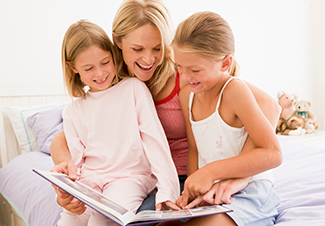Your Cart is Empty
Free Shipping on ALL alarms!
And on all orders of $35 or more *Continental US only
Free Shipping on ALL alarms!
And on all orders of $35 or more *Continental US only

1. It’s not laziness
In my experience, kids with bedwetting aren’t wetting because of laziness. They truly are not interpreting signals from the bladder that indicate it is time to wake up and get to the bathroom. Many kids feel a real loss of control when dealing with bedwetting. They may start each night with the best intentions and wake up each morning soaked. “I will try to get up and go to the bathroom” changes to “Oh, no, I wet again”.
After experiencing this night after night, many just give up or act like they don’t care. Parents interpret this as laziness or not willing to make a change. Hiding dirty laundry can be less humiliating than facing parents with yet another wet bed.
Remember, your child is not to blame. They should not be punished for something that happens while they sleep. They do not know when the wetting occurs.
2. It’s often genetic
Your family history may include:
There is recent genetic proof that there is a genetic variant related to nocturnal enuresis (bedwetting) on chromosome 6 and on chromosome 13. This large study, reported in The Lancet, included 3882 bedwetting cases and over 31,000 controls. As genetic testing becomes more and more sophisticated, it may identify treatments to target these specific mechanisms.
As a parent, you can rest assured that your family genetics affect your child’s bedwetting much more than your parenting skills.
3. Too much water is not the culprit
We all need water for proper bodily functioning—and that includes kids who wet the bed. Many kids who are frustrated about their bedwetting end up not drinking enough because they and their parents think water is the source of the problem. In reality, dehydration can cause hard, pasty poops or constipation, which can lead to bedwetting. Not drinking enough during the day also causes overwhelming thirst in the evening.
4. Constipation can be a major contributing factor
It might seem counter-intuitive that struggling to go number two leads to an uncontrollable release of number one, but it’s true. Constipation and solid bowel movements are a common cause of bedwetting, because an overloaded bowel can restrict the capacity of the bladder. Many kids with constipation or hard bowel movements don’t show signs of bowel trouble (and to complicate matters, there are varying definitions of constipation), so don’t rule it out just because your child has never complained about it. Discuss this with your pediatrician, who may suggest getting an abdominal x-ray.
5. Disposable pants do not cause bedwetting
Children are day toilet trained between ages 2-4. There are generally three types of children when it comes to nighttime dryness.
Using disposable pants in the third group can decrease parent frustration and laundry until a treatment program is in place.
6. Bedwetting Alarms are the treatment of choice
Parents want ways to help their child become dry. An effective tool to do this is a bedwetting alarm. Bedwetting alarms work by sensing wetness, pinpointing when urination is happening so parents can help their child to the bathroom.
This type of behavioral conditioning eventually helps make that important brain-bladder connection. Then your child will wake up before wetting and walk to the bathroom. Once they can do this independently, no more wetting! With help, children who are five or six can cooperate with using a bedwetting alarm.
Comments will be approved before showing up.